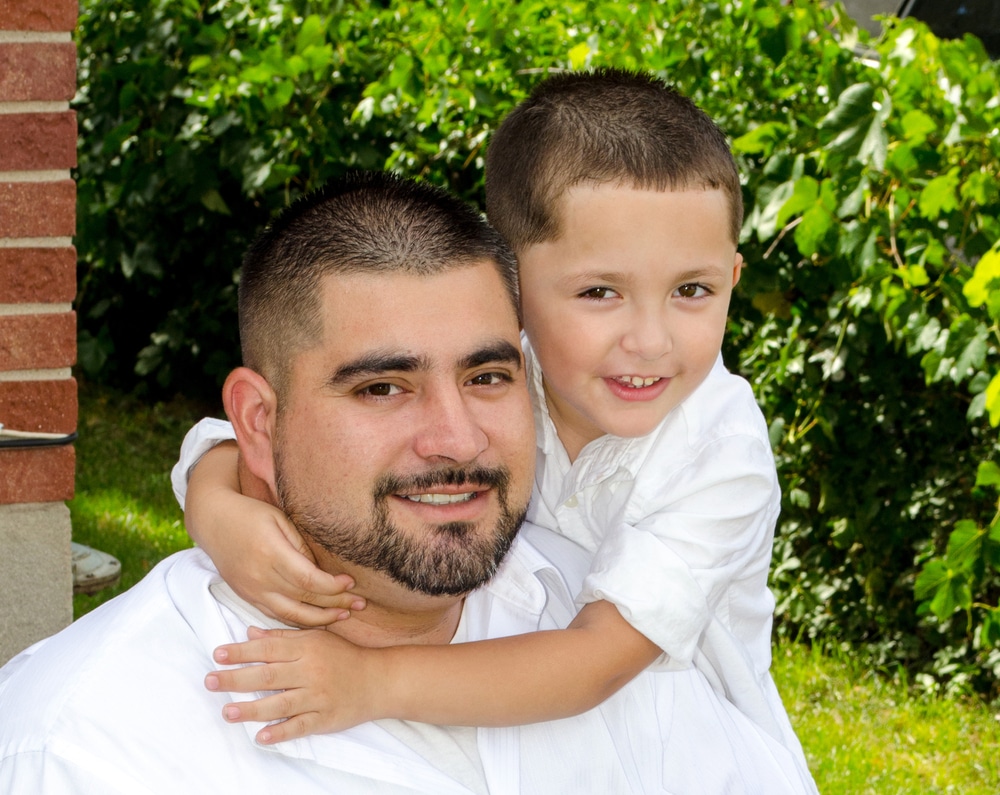

Public Sector Solutions, Public Safety & Reentry, Results-Based Funding
This summer saw the first graduates of the Ventura County Project to Support Reentry, a partnership between Interface Children & Family Services, Ventura County, and Social Finance that aims to reduce recidivism, improve public safety, and promote family stability for vulnerable adults on formal probation living in the county. The graduation ceremony was a powerful testament to community-wide support for the initiative, with friends, family and supporters like case managers, probation officers, and Ventura County officials all in attendance.

The Project is funded through the Pay for Success (PFS) model, in which impact investors provide upfront capital for services and are repaid by Ventura County to the extent that measurable reductions in recidivism are achieved. The program has enrolled nearly 250 participants to date, participants like Fred and Stella, whose stories demonstrate how PFS can expand programs that deeply impact their participants’ lives and provide important insights into effective social service delivery.
1. No Intervention Stands Alone
In 2016, Stella was actively using drugs. She had recently lost her job and was experiencing homelessness when she entered the criminal justice system. Stella was also navigating the early stages of pregnancy while stuck in a difficult relationship. In the face of these overwhelming obstacles, Stella sought help from her probation officer, who connected her with Interface’s Reentry Services program.
Stella’s Interface case manager traveled to the homeless encampment where she lived to develop her individualized case plan. The case worker helped Stella get to and from clinical appointments, while motivating her to stay on track with her treatment and to find housing.
We would talk every session about finding a more secure living arrangement, but until Stella was ready for that transition, we just kept meeting her where she was at and in this case, it was homeless on the street of the Conejo Valley.Stella’s case manager
Stella received clinical services and Moral Reconation Therapy (MRT), a 12-step cognitive behavioral treatment for individuals at risk of recidivation. After achieving some stability, she ended her abusive relationship, entered supportive housing for pregnant women, and continued forward with the therapies in her case plan. Interface helped her access long-term supportive housing, employment and relationship counseling, and critical benefits that enabled her to afford supplies for her soon-to-arrive infant. Stella worked hard over many months and as she nears the end of her probation, she is drug free, employed, and a loving mother to her new baby.
Positive outcomes come from more than just codified service models—individual support matters.
The Ventura PFS project was designed with the intent that most clients would receive MRT, which is highly evidence-based in reducing recidivism. Many clients have benefited from the MRT curriculum, including Stella. But without a case manager to find her in a homeless encampment or connect her with a subsidy to afford care for her baby, Stella’s story might have turned out differently. This individualized support is not codified in the MRT model, but it is critical to the project’s success.
As the PFS field in the United States matures, we need to broaden our focus from determining whether an individual intervention model “works” to better understand the larger context of the client experience with the entire service package. Based on our experience, we would encourage a more holistic approach to evaluating the sources of client success and an intervention’s impact, weighting factors like the quality of the provider’s case management staff as much as an intervention’s formal evidence base.
2. Include Your Client’s Perspective Early and Often
Fred was the first to admit that instability and turmoil characterized his life. He had spent more than three decades on probation and viewed his situation as inevitable. A Ventura County native, Fred was connected with Interface while in custody. He was excited about the opportunity to receive Reentry Services, but he had doubts that the program could help change his situation and he remained skeptical that the probation system and its partners had his best interests in mind.
No one had ever done anything for us before, so to me this was a chance to get some help, turn things around and also be a part of something that will hopefully continue to help others before they get to the point I was at when I started.Fred, program participant
A case worker began meeting with Fred while he was in custody to build trust and rapport. After Fred’s release, his case manager offered to transport him to his probation appointments and the relationship developed from there. He entered MRT soon after and excelled by gaining new insight into his behavior and mentoring his fellow participants. Fred now operates a successful automotive repair business. He hopes to begin volunteering soon to help others find their way.
Client engagement and feedback throughout design and implementation strengthens PFS projects.
Promising social service interventions like MRT are not off-the-shelf tutorials that can simply be taught to participants to achieve target outcomes. Instead, they rely on participants drawing on their own autonomy and commitment to self-improvement, which requires their voice to be represented throughout service delivery.
Interface regularly conducts focus groups with clients enrolled in its Reentry Services program and uses feedback from participants to refine its staffing model, improve outreach practices, and better meet client needs. The culture of feedback has even encouraged former participants like Fred to continue mentoring many of the younger clients and encourage other probationers to join the program.
It sounds intuitive, but the more we empower our intended beneficiaries to design services that work for their circumstances, the more likely they are to engage and the more likely we all are to succeed in strengthening our communities. Future PFS projects should consider allocating more time and resources to service design research with the prospective target population during project development. Other projects might consider using a pilot period prior to refine the intervention based on real-time client feedback or giving clients an advisory role in decision-making committees throughout implementation.
These efforts come with challenges, such as longer design time, small sample size of responses, and selection bias among prospective clients who provide feedback. However, client involvement is critical to ensuring that clinical staff have the tools they need to meaningfully support clients and project partners have a complete understanding of the potential for impact.
The Ventura County Project to Support Reentry is among the first wave of U.S. PFS projects to reach key service delivery and enrollment milestones. As a result, Social Finance is excited to partner with service providers like Interface to better understand how clients experience the services that our projects fund and deliver; and how that experience drives the defined outcomes, like recidivism reduction, that our projects aim to achieve.
Exploring these concepts will force us to grapple with new and difficult questions about how to maximize the impact of PFS projects. And we are committed to using the insights gleaned through current projects, like our partnership with Interface, to address these challenges and drive continuous improvement in the growing Pay For Success field.
Related Insight

3 Key Lessons for Practitioners Using Data to Improve Social Outcomes
Social Finance partnered with Interface and Ventura County to establish Ventura County Project to Support Reentry, a pay for success program that has already enrolled over 340 individuals into reentry services at Interface.

How Integrating Government and Community-Based Services Can Help County Residents Thrive
The Ventura Project to Support Reentry provided high-quality, individualized services—many delivered within the context of a global pandemic—to 346 participants on formal probation in Ventura.